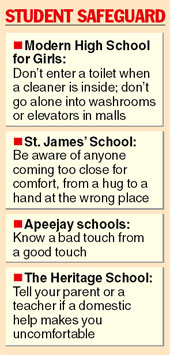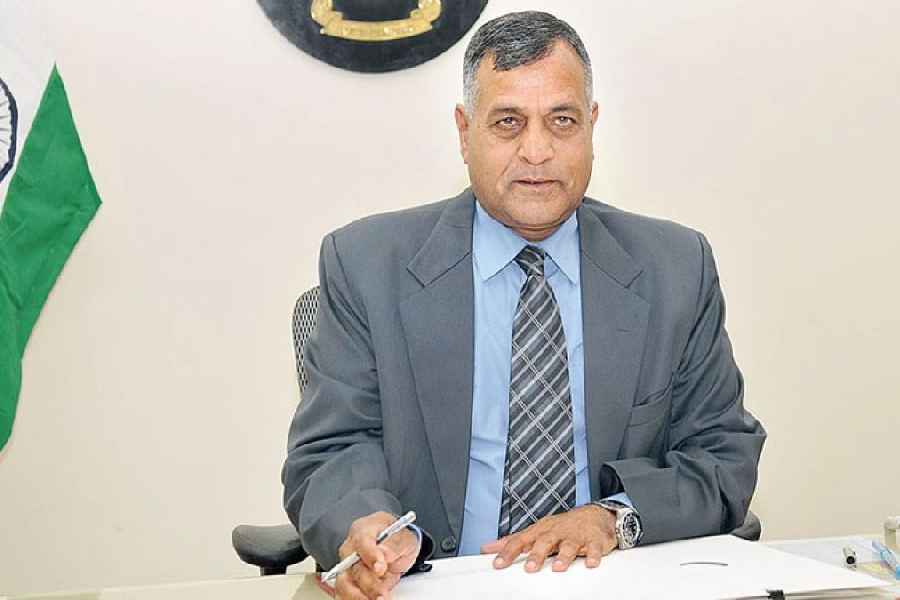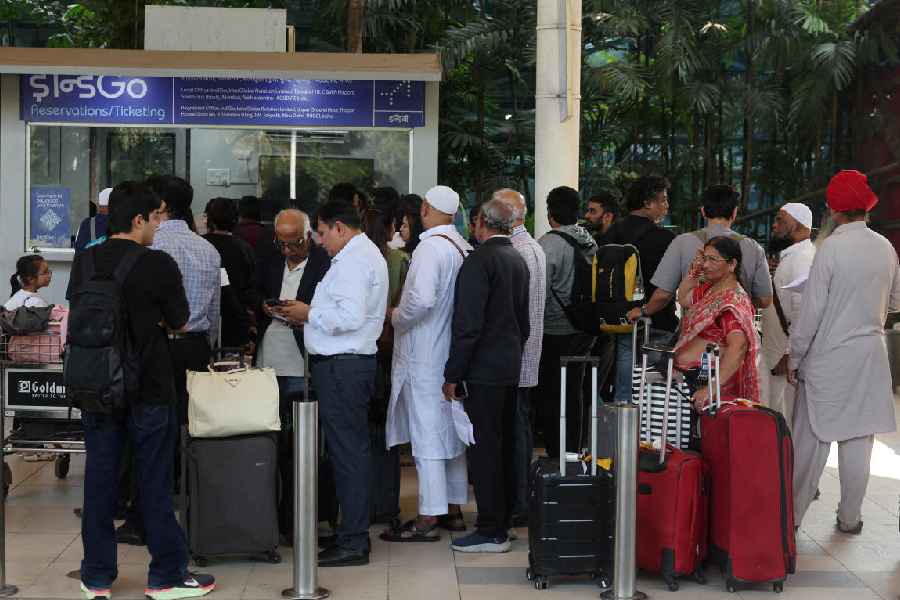 |
Schools in Calcutta are teaching children to tell a “good touch” from a “bad touch” at a time when cases of harassment of students are cropping up on campus with frightening regularity.
Modern High School for Girls has cautioned students against entering loos when cleaners are inside. Bright triangle signs at toilet doors warn them about the presence of cleaning staff. They are also advised not to go alone into washrooms or elevators in malls or other public places.
St. James’ School is alerting them against anyone getting too close for comfort, from a hug to a hand at the wrong place in a pool car, at home or anywhere else. They are urged to report any such incident at once to teachers and parents.
Apeejay schools are spelling out the difference between good and bad touch. “The conductor need not pull you by the waist or feel up your back to help you board the bus,” a teacher at Apeejay Park Street tells a class of seven-year-olds.
So, in classrooms across the city, children aged six to 12 are being trained to tackle situations in which strangers as well as people they are familiar with try to do “dirty things” to them.
“In many households, parents are very casual about these things though they hear about rape, sexual harassment. The school has to take up the matter to protect the child, but it also has to be handled very sensitively, else there are other dangers like the children becoming suspicious of anything around them,” says Devi Kar, the director of Modern High School for Girls.
In a reputable south Calcutta school last month, a mason working on campus had taken a four-year-old child in his lap. A friend of the child cried out in fright.
The school has since barred the entry of parents and guardians to minimise the presence of outsiders on campus, but teachers and parents alike are increasingly convinced that communication is the key safeguard for children.
The words and messages are carefully chosen. The Heritage School, for instance, adopts role-playing methods peppered with humour to connect with kids. For example, a domestic help touching a child in a park. “I see shifty eyes and winces, a tell-tale sign that these children have gone through such situations but are too shy to talk about it,” says psychologist Salony Priya, who counsels students at The Heritage.
Teachers often tell kids that “kissing on the lips can spread germs... an arm across the shoulder is permissible, not a hand creeping under his/her clothes”.
“They are at a very sensitive age and should not get wrong ideas and yet we must teach them to be cautious,” says Angela Ghose, the junior section headmistress at St. James’.
“The topic is very sensitive and there is a definite advantage in talking to them in school among their age group,” adds Anamika Ghose, counsellor at The Doon School.
Schools say striking the right balance is imperative because parents should not feel the school is trying to instil fear in their children.
“The school is sharing the parents’ responsibility. We also try to tell the parents how today’s situation has made their children extremely vulnerable to abuse,” says Angela Ghose.
Sadly, parents are often unaware of the threat posed to their child by harassers close to the family. This can result in a child retreating into a shell and going silent.
“A 15-year-old girl was being abused by a family friend but she kept quiet for a year. She finally spoke to her teacher because she wasn’t sure how her parents would react to this,” says the principal of a south Calcutta school.
On their part, schools are handicapped by the lack of trained personnel to deal with such cases. Most teachers do not notice any behavioural change, especially given the unhappy teacher-student ratio in most classrooms.
Many incidents go unreported either because the child does not even realise that he/she has been wronged or because the abuser is known to the family or because he/she has not been given the confidence by parents to confide in them.
To address all this and more, the need of the hour is for the teacher to go way beyond the textbook.
How do you make your child/student aware about abuse? Tell t2@abp.in











